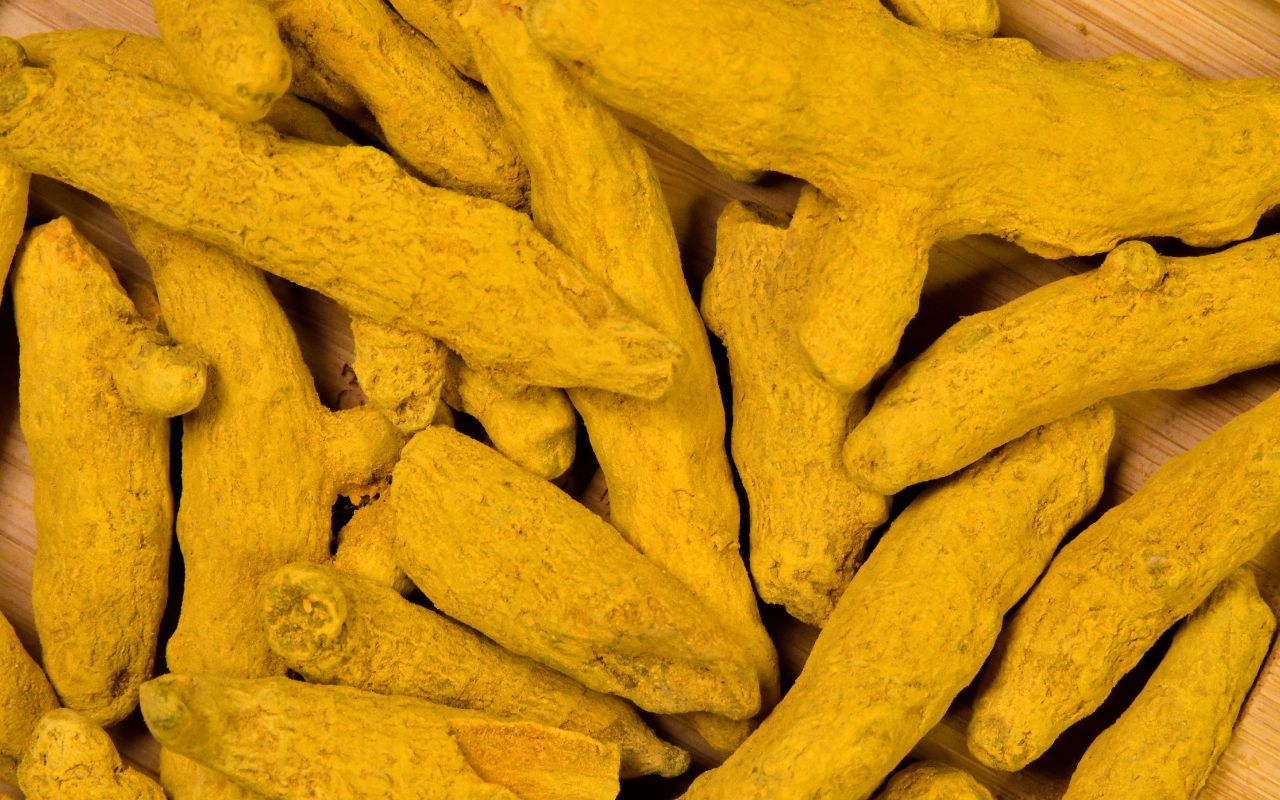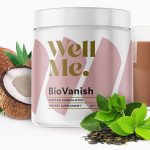Turmeric, a spice known for its vibrant yellow color and distinctive flavor, has been used for thousands of years in traditional medicine and cooking, particularly in Indian cuisine. More recently, it has gained widespread recognition for its numerous health benefits, particularly in inflammation and muscle recovery. This article delves into the extensive advantages of incorporating turmeric into your diet, backed by scientific research and practical applications.
Inflammation is the body's natural response to injury or stress. While acute inflammation is vital to the healing process, chronic inflammation can lead to various health issues, including muscle damage and delayed recovery after intense exercise. Turmeric, specifically its active compound curcumin, has been found to have potent anti-inflammatory properties that can help mitigate these effects and promote faster recovery times.
Turmeric and Its Active Compound, Curcumin
Curcumin is the primary bioactive substance in turmeric and is responsible for its medicinal properties. It has powerful anti-inflammatory and antioxidant effects that can be crucial in modulating various biological pathways associated with inflammation and muscle recovery.
When you suffer muscle pain due to overexertion or injury, your body creates an inflammatory response to repair the damaged tissues. This process is essential for healing; however, excessive inflammation can cause prolonged pain and discomfort. Curcumin helps by inhibiting several molecules that play significant roles in inflammation, such as nuclear factor-kappa B (NF-κB) and tumor necrosis factor (TNF).
Scientific Evidence Supporting Turmeric's Benefits
Numerous studies have shown turmeric's efficacy in reducing inflammation and aiding muscle recovery. For instance, a study on rats demonstrated that curcumin supplements improved muscle recovery and performance. The anti-inflammatory properties of curcumin significantly reduced oxidative stress caused by strenuous exercise, leading to faster recovery times and less muscle damage. Similarly, human studies have confirmed curcumin's ability to reduce muscle soreness and promote quicker healing post-exercise.
Another research piece highlighted that consuming about ½ tablespoon of turmeric daily (approximately 180 mg/day) significantly reduced pain in individuals with knee arthritis within eight weeks. This reduction in pain is attributed to curcumin's ability to suppress inflammatory pathways and reduce the expression of inflammatory cytokines.
Incorporating Turmeric into Your Diet
Incorporating turmeric into your diet can be relatively simple and can take various forms. Traditional methods include adding turmeric powder to curries, soups, and stews, enhancing the flavor and imparting potential health benefits. Turmeric has recently gained popularity in beverages such as golden milk lattes and turmeric teas, which combine spice with fats like coconut oil or milk to increase its bioavailability.
One popular recipe is Turmeric Pina Colada Smoothie, which combines frozen banana, pineapple, canned coconut milk, ground turmeric, and black pepper to enhance absorption. This refreshing, post-workout smoothie can help reduce inflammation and promote muscle recovery.
Moreover, considering curcumin's low bioavailability, it’s essential to consume it with black pepper or fats for optimal absorption. Supplements containing curcumin with added piperine (found in black pepper) or fats can significantly enhance its bioavailability, ensuring you benefit from this potent compound.
Practical Applications for Athletes
Athletes and fitness enthusiasts can particularly benefit from turmeric’s anti-inflammatory and muscle recovery properties. Intense training sessions and competitions often lead to muscle soreness and inflammation, affecting performance and recovery times. Incorporating turmeric into their daily regimen can help alleviate these issues and improve overall performance.
For long training cycles, athletes are advised to take turmeric supplements consistently to reduce muscle soreness and joint stiffness. This consistent intake can help them recover faster and maintain their training schedules without significant downtime due to pain or inflammation. Personal anecdotes from athletes have shown that regular turmeric consumption can lead to noticeable improvements in sore areas and joint issues, allowing them to bounce back faster.
Turmeric in Traditional Medicine
Turmeric has a long history of use in traditional medicine, particularly in Ayurveda and Traditional Chinese Medicine (TCM). It has been used to treat various ailments, from digestive to respiratory conditions. The anti-inflammatory and antioxidant properties of curcumin have made it a staple in these medicinal practices for promoting overall health and well-being.
In Ayurveda, turmeric is considered a warming spice. It is often used to balance the doshas (body energies) and enhance digestion. Due to its antiseptic properties, it is also used topically to treat wounds and skin conditions. In TCM, turmeric is believed to invigorate the blood and move Qi (energy), which is essential for reducing pain and swelling.
Modern Scientific Validation
Modern science has started to uncover the mechanisms behind turmeric’s health benefits, validating its traditional uses. Researchers have found that curcumin can modulate various signaling pathways involved in inflammation and cell proliferation, making it a valuable natural remedy for multiple health issues.
Additionally, curcumin's antioxidant properties help combat oxidative stress, significantly contributing to chronic inflammation and various diseases. By neutralizing free radicals, curcumin can protect cells from damage and support overall cellular health.
Other Health Benefits of Turmeric
Beyond its anti-inflammatory and muscle recovery benefits, turmeric offers a range of other health advantages. For instance, studies have shown that curcumin can support heart health by improving endothelial function, which is critical for regulating blood pressure and reducing the risk of cardiovascular diseases. It can also help manage cholesterol levels and prevent LDL cholesterol oxidation, a significant risk factor for heart disease.
Turmeric is also known for its potential anticancer properties. Curcumin has been found to inhibit the growth of cancer cells and promote apoptosis (programmed cell death) in various types of cancers. These effects are due to its ability to modulate multiple molecular targets and signaling pathways involved in cancer development and progression.
Additionally, curcumin has shown promise in improving mental health by enhancing brain function and reducing the risk of neurodegenerative diseases. It can cross the blood-brain barrier and exhibit neuroprotective effects, potentially benefiting conditions like Alzheimer’s disease and depression. Curcumin’s ability to increase brain-derived neurotrophic factor (BDNF) levels, a protein crucial for brain health, further supports its role in promoting cognitive function and mental well-being.
Safety and Precautions
While turmeric and curcumin are generally safe for most people, it’s essential to be aware of potential side effects and precautions. High doses of turmeric can lead to gastrointestinal issues such as nausea, diarrhea, and stomach discomfort. People with gallbladder problems should avoid turmeric, which can exacerbate these conditions by stimulating the gallbladder to contract.
Turmeric is also high in oxalates, which can increase the risk of kidney stones in susceptible individuals. Therefore, those with a history of kidney stones should be cautious about their turmeric intake. Additionally, turmeric’s blood-thinning properties can interfere with anticoagulant medications, so it’s advisable to consult with a healthcare provider before incorporating high doses of turmeric into your routine.
Conclusion
Turmeric is a versatile and potent natural remedy with numerous health benefits, particularly for inflammation and muscle recovery. Its active compound, curcumin, has been extensively studied for its anti-inflammatory, antioxidant, and anticancer properties, making it a valuable addition to a healthy lifestyle.
Incorporating turmeric into your diet or taking supplements can harness its potent health benefits, promote faster muscle recovery, reduce pain and inflammation, and support overall well-being. Whether you’re an athlete looking to improve performance and recovery times or simply seeking to enhance your health, turmeric offers a natural and effective solution.
Incorporating turmeric into your daily routine can be as simple as adding it to your meals, enjoying turmeric-infused beverages, or taking high-quality supplements. With its long history of use in traditional medicine and growing scientific evidence, turmeric is a valuable natural remedy that can contribute to a healthier and more active life.
Visit A. Vogel or HealthifyMe for more detailed information on turmeric's benefits and how to use it effectively.










